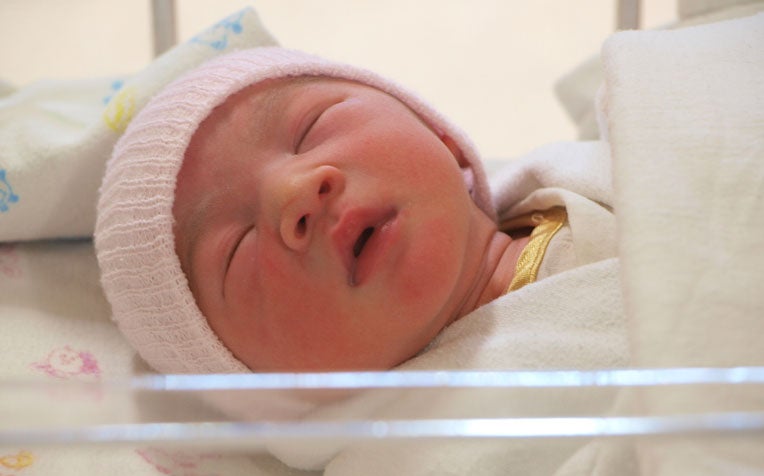
High-risk infants demand specialised care. The good news is, survival rates for high risk infants have improved significantly.
Most mothers-to-be look forward to delivering a normal, healthy baby, so it can be difficult for them to cope if the newest addition to the family is a high-risk infant who requires a long hospital stay and specialised, round-the-clock neonatal care.
What are high-risk infants?
Premature babies (less than 37 weeks) and low birth weight babies (weighing less than 2,000 g) are defined as high-risk. These newborns are at higher risk for:
- respiratory distress syndrome (where baby’s lung is immature, so baby works hard at breathing),
- apnoea (where baby stops breathing for more than 20 seconds),
- hyperglycaemia (high blood sugar),
- heart, intestinal and brain conditions.
The range and severity of complications increases with decreasing maturity of the newborn.
“Caring for a high-risk infant can be mentally and emotionally daunting. There is a mortality risk, but the survival rate of high-risk infants has improved significantly with better maternal health and advancement in obstetric and neonatal care,” says Associate Professor Yeo Cheo Lian, Senior Consultant, Department of Neonatal and Developmental Medicine, Singapore General Hospital (SGH), a member of the SingHealth group.
At the neonatal intensive care units, high-risk infants are treated and supported according to their medical needs. They are kept in incubators to maintain a normal body temperature.
Most of these newborns are fed nutrients through a drip in their initial weeks until they are ready to digest and absorb the milk. Breast milk is recommended for all high-risk infants. Only when they can breathe regularly, retaining their feeds and capable of maintaining body temperature, are they discharged.
Caring for low birth weight and premature babies
Here are six infant care tips:
-
Get involved in caring for your high-risk infant
Even if your infant is in neonatal intensive care, get involved with the care-giving whenever possible. By talking, touching and feeding your baby, you will better bond with your child.
-
Join a support group
Joining a support group such as the Light-Weight Club at SGH will put you in touch with other parents who had similar experience or are in a similar situation. Formed by parents, the Light-Weight Club provides support, information and education for parents of low birth weight babies.
-
Be vigilant against common chronic medical complications
High-risk infants are more at risk of apnoea, a condition where breathing is interrupted. Babies may turn ‘blue’ when breathing stops for more than 20 seconds. Your baby’s doctor and nurse will advise you on how to monitor and handle such events. A home apnoea monitor can be used where indicated.
Acid reflux, a condition caused by the leak of stomach contents into the oesophagus resulting in spitting out of milk, is also common in premature babies. In severe cases, the condition can interfere with your baby’s growth and health.
-
Beware of infections
High-risk infants are more prone to infections because of their less matured immune systems. Proper infant care includes disinfecting your hands often, keeping toys clean and avoiding crowded places. Preventing infection through vaccination is of vital importance in all high-risk infants.
-
Correct sleeping position
Make sure your baby sleeps on the back. Sleeping on their ‘stomach’ increases the risk of sudden infant death syndrome (SIDS), a condition reported to be more common among low birth weight and premature babies.
-
Regular medical follow-up is a must
High-risk infants, particularly premature babies, may develop bronchopulmonary dysplasia, a chronic lung condition. They may need supplemental oxygen and prolonged medications even after discharge.
Babies born preterm are at higher risk of developing problems related to their vision and hearing. It is recommended that these infants receive timely review and treatment where required. Given their initial medical problems, low-weight and premature babies may face developmental challenges later in early childhood. Regular medical and developmental follow-up will ensure that your child receives optimal care for any medical or developmental challenges as they grow.
SGH’s Department of Neonatal & Developmental Medicine has a Neonatal Follow-up Programme for high-risk infants.
“Although the survival of babies born extremely premature has improved, pregnant women can lower their risk of delivering a high-risk infant by keeping to a healthy diet, avoiding cigarettes and alcohol and seeking early prenatal care,” says Associate Professor Yeo.
Ref: T12














 Get it on Google Play
Get it on Google Play